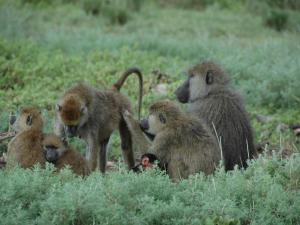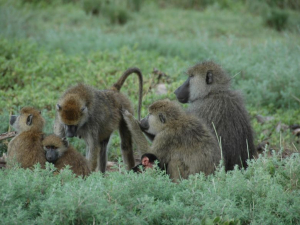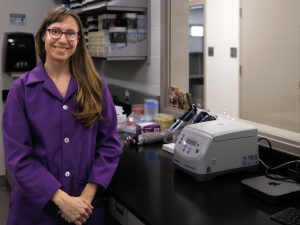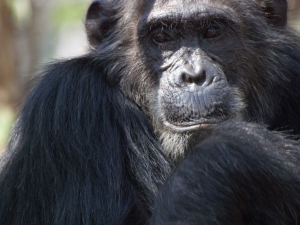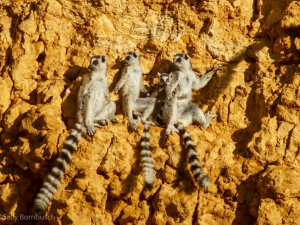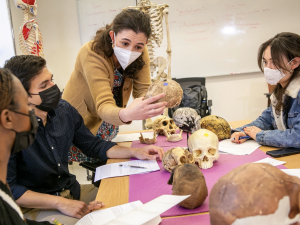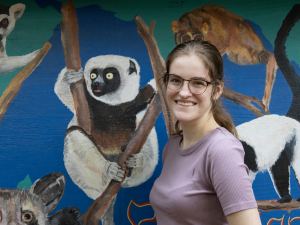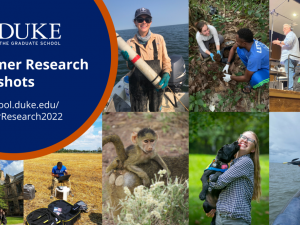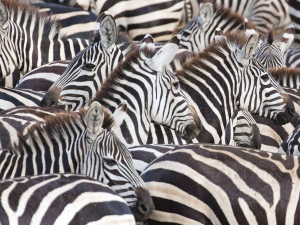DURHAM, N.C. -- Decades of research show that experiencing traumatic things as a child -- such as having an alcoholic parent or growing up in a tumultuous home -- puts you at risk for poorer health and survival later in life. But mounting evidence suggests that forging strong social relationships can help mitigate these effects. And not just for people, but for our primate cousins, too. Drawing on 36 years of data, a new study of nearly 200 baboons in southern Kenya finds that adversity early in life can take years off… read more about Adult Friendships Can Triumph Over Childhood Trauma, Even in Baboons »
The National Academy of Sciences on Tuesday announced the election of 120 new members and 23 international members in recognition of their distinguished and continuing achievements in original research. Established by an Act of Congress signed by President Abraham Lincoln in 1863, the NAS is charged with providing independent, objective advice to the nation on matters related to science and technology. Duke’s three new members join 31 other members of the National Academy of Sciences on the Duke faculty.… read more about Two Trinity Faculty Elected to National Academy of Sciences »
Elaine Guevara doesn’t shy away from difficult conversations. As a lecturer in the Evolutionary Anthropology department, she weaves evolution, genetics and physiology with history and ethics, tackling head-on problematic interpretations and aspects of human evolution research to give students tools to identify and debunk racist scientific ideas. Guevara first joined Duke in 2019 as an assistant research professor of Evolutionary Anthropology, a position where she combined teaching and research. She started as a… read more about Through her Evolutionary Anthropology Classes, Elaine Guevara Invites Students to Take a Side Door to STEM »
DURHAM, N.C. -- Throw a tantrum. Threaten, shove aside or steal from your colleagues. Science confirms, yet again, that brutish behavior can be an effective path to power. And not just in humans, but in chimpanzees, too. A new study appearing April 24 in the journal PeerJ found that male chimps with more bullying, greedy and irritable personalities reached higher rungs of the social ladder and were more successful at siring offspring than their more deferential and conscientious counterparts. But if that’s the case,… read more about Long-term Research on Chimpanzees Offers New Clues to the Puzzle of Personality »
Could you stay in a dorm-sized chamber for 36 hours to advance science? This room is actually a sealed chamber that can measure a person’s metabolic rate by analyzing all the air going in and out of the room while they conduct different activities like sleeping, working or biking. Herman Pontzer, associate professor of evolutionary anthropology, is using this special room to study whether a person’s genetics or size affect their metabolism. This is part of the Check It Out series of short videos on science research at… read more about A 36-Hour Stay in a Chamber to Advance Metabolism »
Susan Alberts, Robert F. Durden Distinguished Professor of Biology and Evolutionary Anthropology, is a co-recipient of the Frontiers of Knowledge Award in Ecology and Conservation Biology. The BBVA Foundation Frontiers of Knowledge Awards, now in their 15th edition, recognize and reward contributions of singular impact in science, technology, the humanities and music. The award is funded with 400,000 euros in each of their eight categories. Alberts, who until last year was… read more about Susan Alberts Receives International Frontiers of Knowledge Award »
Doug Boyer was a hit at his daughter’s kindergarten show and tell. The associate professor of Evolutionary Anthropology came armed with a life-sized, 3D-printed vertebra belonging to the world’s largest living snake, the green anaconda (Eunectes murinus). Once the students were done oohing and aahing over the plum-sized bone replica, he pulled a second vertebra, ten times larger than the anaconda’s, out of his bag. It was a life-sized replica of a vertebra belonging to Titanoboa, a snake that went… read more about How a Digital Repository Is Democratizing Science From a Duke Basement »

